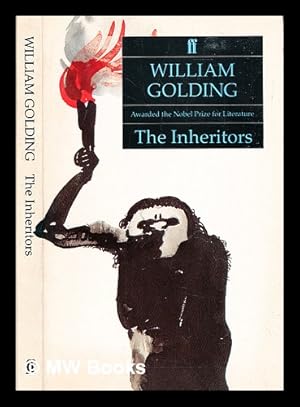

As successor to Lord of the Flies, which has replaced Orwell and Huxley as a campus classic, this book is insured a wide audience and far more critical attention than its predecessor received. His other works include The Inheritors (1955),Pincher Martin (1956), The Spire (1964), Rites of Passage (1980), The Double Tongue (published posthumously in 1995. Even more rewarding, perhaps, is the penetrating social and human criticism artfully enmeshed in the fiction-a challenge to contemporary descendants of the strange New People. William Golding (1911-1993) was a Booker and Nobel Prize-winning author, best known for his first novel, Lord of the Flies, published originally in 1954 and adapted for film in 1963. Carefully developed in the reactions and expressions of the ""primitives"", it is consummate fiction with an aura of discomfiting reality. Lok and Fa, gentle and foredoomed, sense only danger, while we, the modern inheritors, become gradually-and somewhat painfully aware of our critical resemblance to the New People. They drink from an animal skin, move on the river in hollow logs and, although wise and clever, treat each other and the two captured children with savage cruelty. These strange bony, upright creatures have peculiar protuberances over their eyes and removable fur about their middles. When Great Oa, the maternal deity, takes four adults back into her belly, only Lok, a man of many words but few pictures (thoughts), and Fa, a woman blessed with humble commonsense, are left to shelter two children from the sudden presence of Other-the New People.

Eight of the early people remained to continue their well-ordered, simple, and serene existence.

Here in a novel about the last survivors of Neanderthal man, the expert author of Lord of the Flies advances these limits to probe prehistory and the nearest ancestors of Homo Sapiens. In 2008, The Times ranked Golding third on their list of "The 50 greatest British writers since 1945.In his concern with immediate present and imminent future, man's memory has traditional limits. He was awarded the Booker Prize for literature in 1980 for his novel Rites of Passage, the first book of the trilogy To the Ends of the Earth. Classical Greek literature, such as that of Euripides, and The Battle of Maldon, an Anglo-Saxon oeuvre of unknown author influenced him.Ĭollege students in the 1950s and 1960s gave the attention to Lord of the Flies, first novel of Golding their attention drove that of literary critics. This experience strongly influenced his future novels. Golding spent two years, focusing on sciences, in Oxford but changed his educational emphasis to English, especially Anglo-Saxon, literature.ĭuring World War II, he served as part of the royal Navy, which he left five years later. People best know this British novelist, poet, and playwright for this novel. People note British writer Sir William Gerald Golding for his dark novels, especially The Lord of the Flies (1954) he won the Nobel Prize of 1983 for literature.


 0 kommentar(er)
0 kommentar(er)
